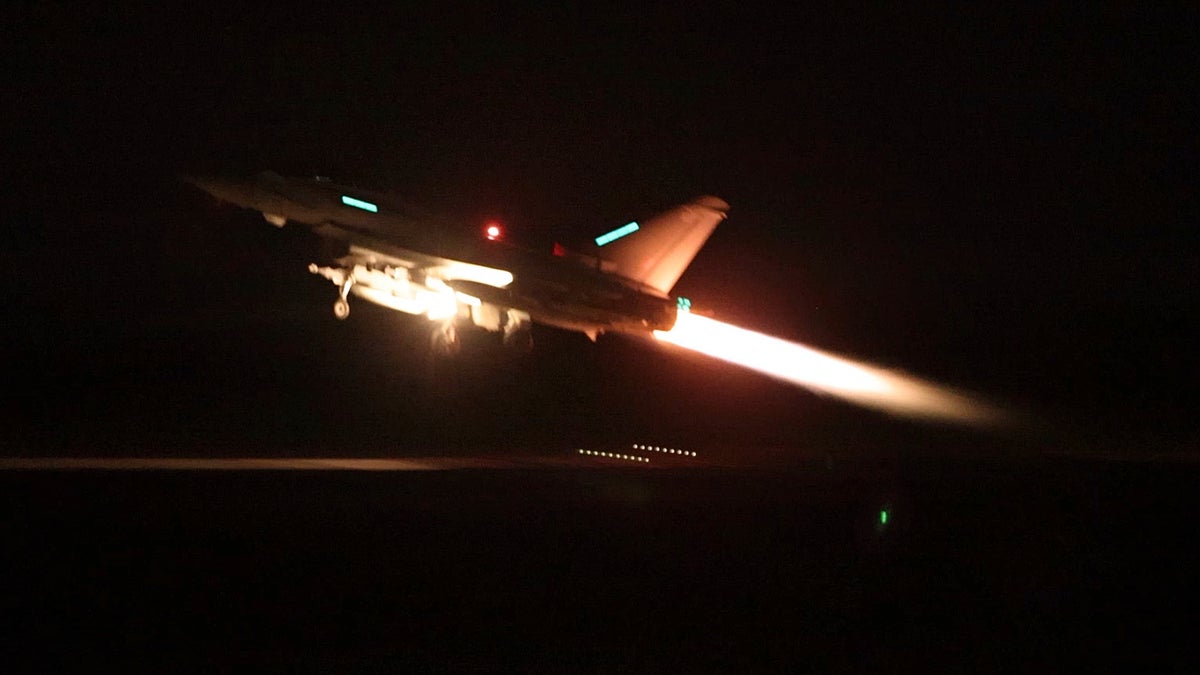
Sign up for the View from Westminster email for expert analysis straight to your inbox
Get our free View from Westminster email
The UK has said strikes on targets linked to Iran-backed Houthi rebels in Yemen were self-defence as mid a row over his decision not to consult parliament.
But the prime minister is facing calls to recall parliament after he ordered the action without consulting MPs.
Overnight the Royal Air Force launched strikes against military facilities used by Houthi rebels in Yemen, the prime minister confirmed, saying the UK will "always stand up for freedom of navigation and the free flow of trade".
It follows weeks of warnings to the group since it started targeting international shipping in the Red Sea late last year.
A joint statement from countries including the UK and the US said they action has been taken “in accordance with the inherent right of individual and collective self-defence”.
US military forces, backed by the UK and supported by Australia, Bahrain, Canada, and the Netherlands, conducted the strikes.
The Military of Defence said coalition forces identified key facilities involved in Houthi targeting of HNS Diamond and US Navy vessels on Tuesday "and agreed to conduct a carefully coordinated strike to reduce the Houthis' capability to violate international law in this manner".
Lord Ricketts, who served as the UK's first national security adviser, has said targeted strikes against Houthi rebels are "necessary" and "inevitable".
He told BBC Radio 4's Today programme: "I think it became inevitable when the clear warnings that the US and UK and others had put out over weeks were ignored by the Houthis.
"And I think the final straw was that very complex and dangerous attack on the naval task force itself a couple of nights ago, I think at that point they couldn't allow this to continue.
"It's already having a major disruptive effect on this big maritime artery which carries 20% of all the world's container traffic, as well as a lot of oil and gas exports, and therefore I think this attack was necessary, I think it was inevitable.
"I think they've tried to make it large enough to send a very powerful message, but equally being clear it's targeted against the attacks on shipping, it's not a declaration of war against the Houthis more generally."
But the prime minister has come under pressure to bring MPs back to parliament to discuss the strikes.
Keir Starmer said he supported targeted strikes but called for a statement in Parliament “at the first opportunity”.
The Labour leader, asked if the military action his support, told the BBC Radio 5 Live breakfast programme: “Clearly the Houthi attacks in the Red Sea have to be dealt with, their attacks on commercial shipping, attacks on important trade routes and putting civilian lives at risk and therefore, we do support this action.”
But he also called for a statement in Parliament “at the first opportunity, to set out the justification, to set out the limits and scope of the operation” and said he wanted to see a summary of the government’s legal position “published as soon as possible, and I would hope that that can be published today.”
The Liberal Democrats and the SNP demanded Parliament be recalled if the UK Government is preparing to take military action.
The Commons Speaker cannot recall Parliament without being asked to do so by the Government, and Mr Sunak is not expected to make such a request.
Before the strikes were confirmed, Liberal Democrat defence spokeswoman Layla Moran said a vote in Parliament would be "vital" if Britain was poised to launch an attack, while Scotland's First Minister Humza Yousaf said MPs must be given the chance to debate and scrutinise such a move.
✕
Subscribe to Independent Premium to bookmark this article
Want to bookmark your favourite articles and stories to read or reference later? Start your Independent Premium subscription today.
SubscribeAlready subscribed? Log in
Popular videos
{{/link}}

